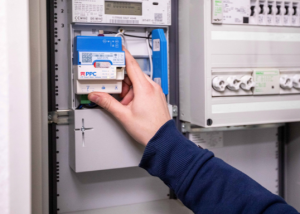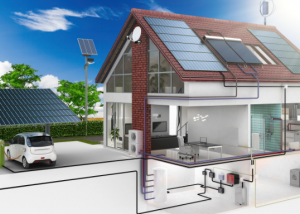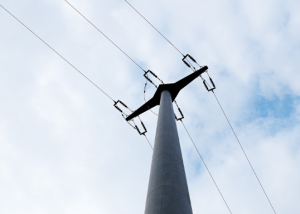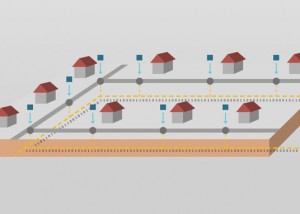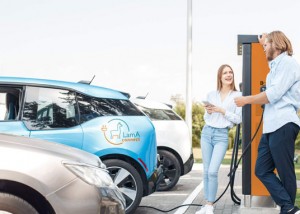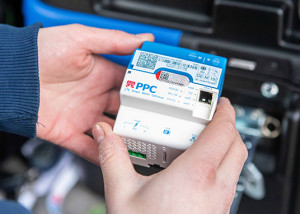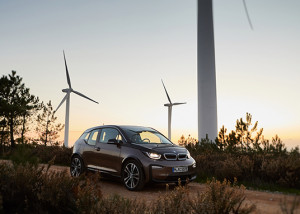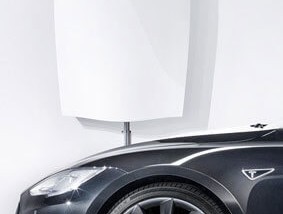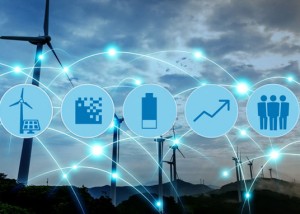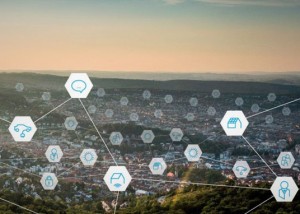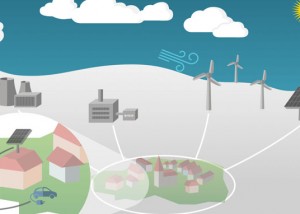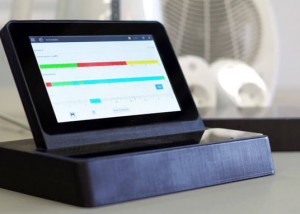unIT-e² Real Lab for Networked E-Mobility
“unIT-e²”, is a joint project with 26 consortium partners, including PPC, to develop which integrate e-mobility intelligently and securely into current and future infrastructures. The focus will be to develop and test interoperable solutions that will underpin successful sector coupling.
Because stakeholders sometimes have competing interests, unIT-e² builds real laboratories that provide a neutral framework where they can work together on solutions, under scientific guidance, without having to put their own business goals on hold.

The challenges
The energy transition in Germany entails a fundamental restructuring of the energy system.
On the one hand, electricity generation is becoming increasingly volatile and, on the other hand, the demand for electricity in the heating and mobility sectors is rising due to increasing electrification.
Coupling these sectors with the power grid offers the opportunity to develop flexibilities and react to volatile generation with flexible consumption. However, this also increases the complexity for all players involved. For a sustainable market ramp-up of electromobility, therefore, answers must be found to both grid-related and customer-related questions.
- When will charging take place, to what extent, and with what power?
- How flexible can charging processes be?
- How can sensitive data be securely recorded, transmitted and processed?
- Compatible systems are the prerequisite for profitable sector coupling, so what do those look like?
Process
In the unIT-e² project the challenges of holistic and sustainable integration of electromobility into the energy system are being met project by a broad-based consortium. In addition to the technical and economic aspects, a closely coordinated approach will integrate legal and social perspectives into the solutions developed.
- Demonstration of the use of electric vehicles as a contribution to sustainable sector coupling in the field trials.
- Stepwise harmonization of competing stakeholder interests with regard to electric mobility beyond the project duration
- Breaking up isolated, company-specific solutions along relevant process chains in the pursuit of customer-oriented standardization
- Development and testing of secure and interoperable smart-charging concepts with a view to integrating electric vehicles into the energy system from the grid and market side
- New customer-oriented management and marketing strategy for charging infrastructure using SMGW architecture
- Strengthening societal trust in electric mobility and its sustainability.
Role of PPC
One of the prerequisites for the fulfilment of the objectives in the project is procurement and utilization of flexibility potentials on the consumer side (e.g. charging infrastructure or heat pumps). This is where PPC’s contribution to the project comes in.
The grid-serving and electricity market-oriented integration of charging infrastructures and other controllable consumer devices into the electricity grids is to be achieved through the further development of the smart metering system infrastructure.
For this purpose, the use of smart metering systems (modern metering equipment + SMGW) for the standardized connection of electricity consumers and their control is being tested. The necessary hardware and software developments will be prototyped and tested in the real laboratories.
In particular, the following is to be implemented via the IMSys (modern measuring unit + SMGW):
- Billing which is compliant with Calibration law
- BSI compliant highly secure controlling access to charging infrastructures
Funded project and partners
The unIT-e² project is jointly funded by the BMWi and BMU for three years as part of the “Elektro-Mobil” funding call. The agency executing the project is the German Aerospace Center (DLR). The project is managed by the Forschungsgesellschaft für Energiewirtschaft mbH.
![BMBF_CMYK_Gef_M [Konvertiert] BMBF Logo Englisch](https://www.ppc-ag.de/wp-content/uploads/2020/10/BMBF_gefoerdert_2017_en_web.jpg)
Partners:
- Bayernwerk Netz GmbH
- BMW AG
- Consolinno Energy GmbH
- EAM Netz GmbH
- EEBUS Initiative e.V.
- EWE GO GmbH
- EWE NETZ GmbH
- FfE e.V.
- FfE GmbH
- Flavia IT Management GmbH
- Fraunhofer SIT
- Kostal Industrie Elektrik GmbH
- Mercedes Benz AG
- Regionalmanagement Nordhessen GmbH
- RWTH Aachen
- Schneider Electric GmbH
- Stadtwerke München GmbH
- Stiftung Umweltenergierecht
- TenneT TSO GmbH
- The Mobility House GmbH
- Universität Duisburg-Essen
- Universität Kassel
- Universität Passau
- Viessmann Climate Solutions SE
- Volkswagen AG Group Innovation
Associated partners:
- Ford Werke
- Lechwerke AG
- Stadtwerke Düsseldorf
All Innovation projects
